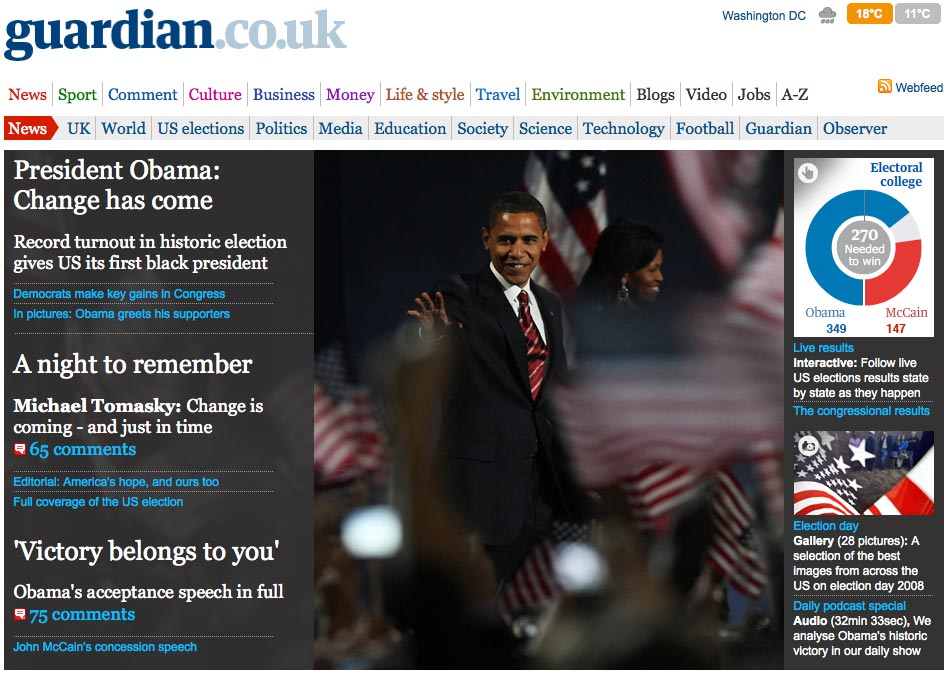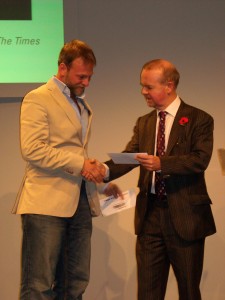It was all a bit kids in a sweetshop at yesterday’s AOP Digital Publishing Summit, if we forget all the problems with wifi, of course.
The main aim, for most attendees, In all likelihood, was to talk to all the people they know in online life, but rarely get the chance to talk to in person – over coffee (and odd looking cake/pastries) and lunch during the day, and drinks in the evening.
The programme ranged from panels to energetic speakers with a broad range of digital publishing topics covered – though perhaps not as much new discussion was initiated as some participants hoped, despite Peter Bale from Microsoft attempt to get some answers from YouTube’s Jonathan Gillespie.
A few additional highlights to add to our coverage so far:
Emily’s Bell’s vision for Guardian’s international reach: In the panel introducing ‘the digital pioneers,’ Bell, director of digital content for Guardian News & Media, said the group sees now as a ‘uniquely’ timed opportunity for the brand to expand internationally – and to do so before their rivals do.
Speaking to Journalism.co.uk afterwards, Bell elaborated on her example of the Economist’s well-established grasp of the international market. Although it happened for the Economist over a 20-year period, she told me that a similar endeavour in 2008 is ‘compressed’ by the web.
Bell also pointed out during the panel that the Chinese words for ‘crisis’ and ‘opportunity’ are one and the same (I tried to keep that in mind as my laptop charger physically broke and the wifi went down).
The Guardian’s move stateside was also referred to by Saul Klein, partner of Index Ventures and moderator of later panel ‘Growing in the Digital World’.
Quoting Simon Waldman, Guardian Media Group’s director of digital strategy and development (and Emily Bell’s boss), Klein said the Guardian’s acquisition of ContentNext was ‘well set up to exploit’. Waldman explained how moves like that prepared the group for a US audience.
The ‘Unlocking the mobile internet’ panel: In the spirit of the thing, TechCrunch’s Mike Butcher gave out his mobile number for questions before probing the panel on their respective views on mobile internet’s future.
Is 2009 the year of mobile? Melissa Goodwin, controller of mobile at ITV says not: “I don’t think it’s next year, I’m hoping it’s 2010.”
“We just want to give you anything you may want,” she said of ITV’s mobile strategy, though she admitted that building advertising revenue was very much an ongoing issue.
Goodwin also revealed that consumers can look forward to Friends Reunited on two iPhone applications in the first part of next year, as reported in more depth over at PaidContent.
Stefano Maruzzi, president of CondeNet International, on outlining Conde’s digital development: As reported over at MediaGuardian and PaidContent, CondeNet, the online arm of Conde Nast, has got lots of ideas about lots of things:
- Rolling out a Wired website worldwide (and in different languages, he told PaidContent)
- Keeping Tatler’s online presence minimal
- Engaging with the iPod user audience


